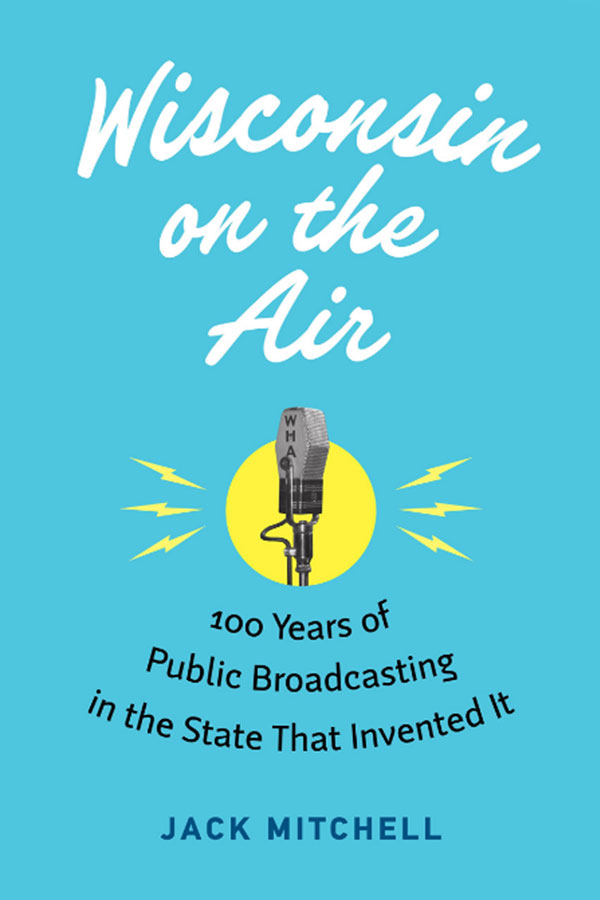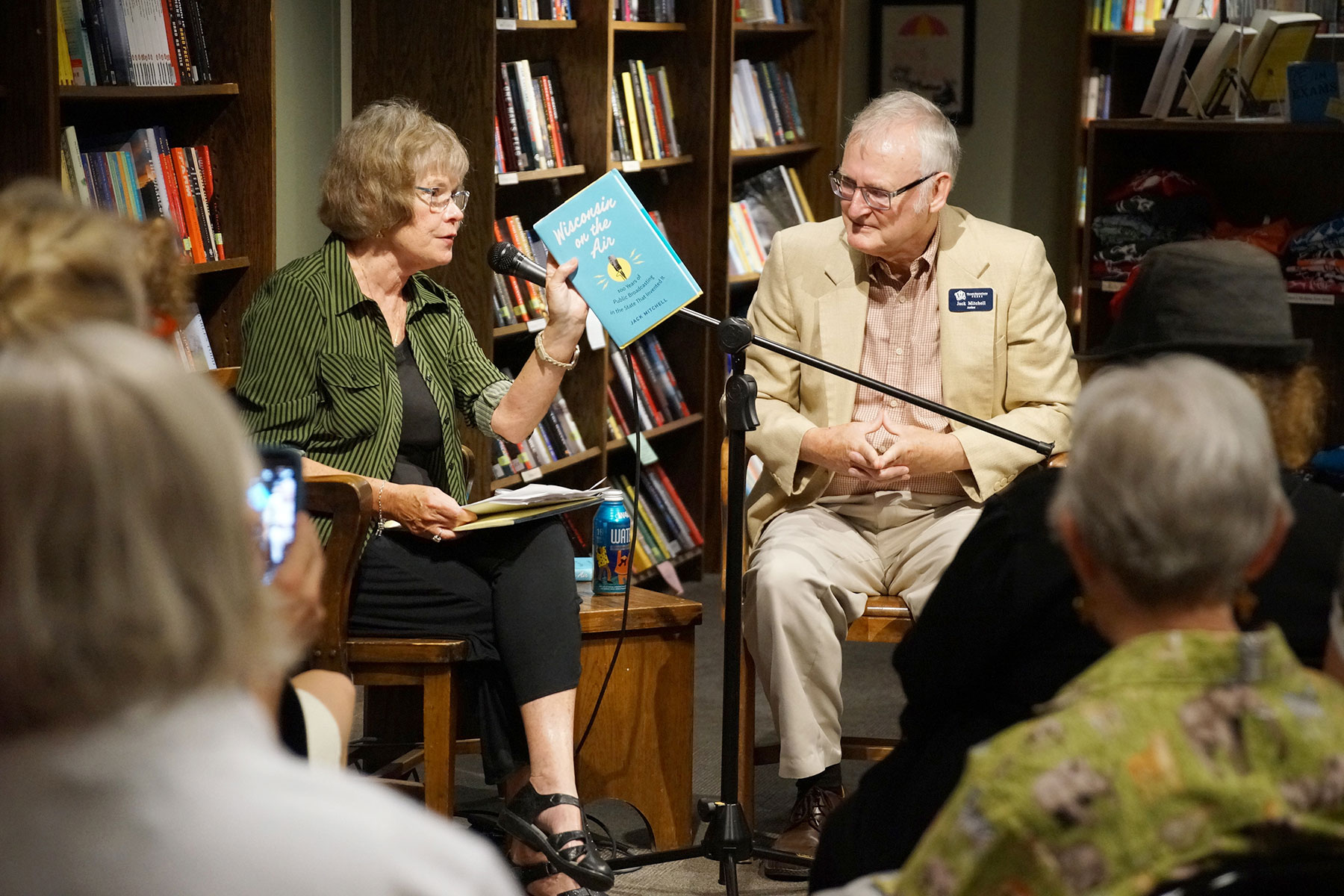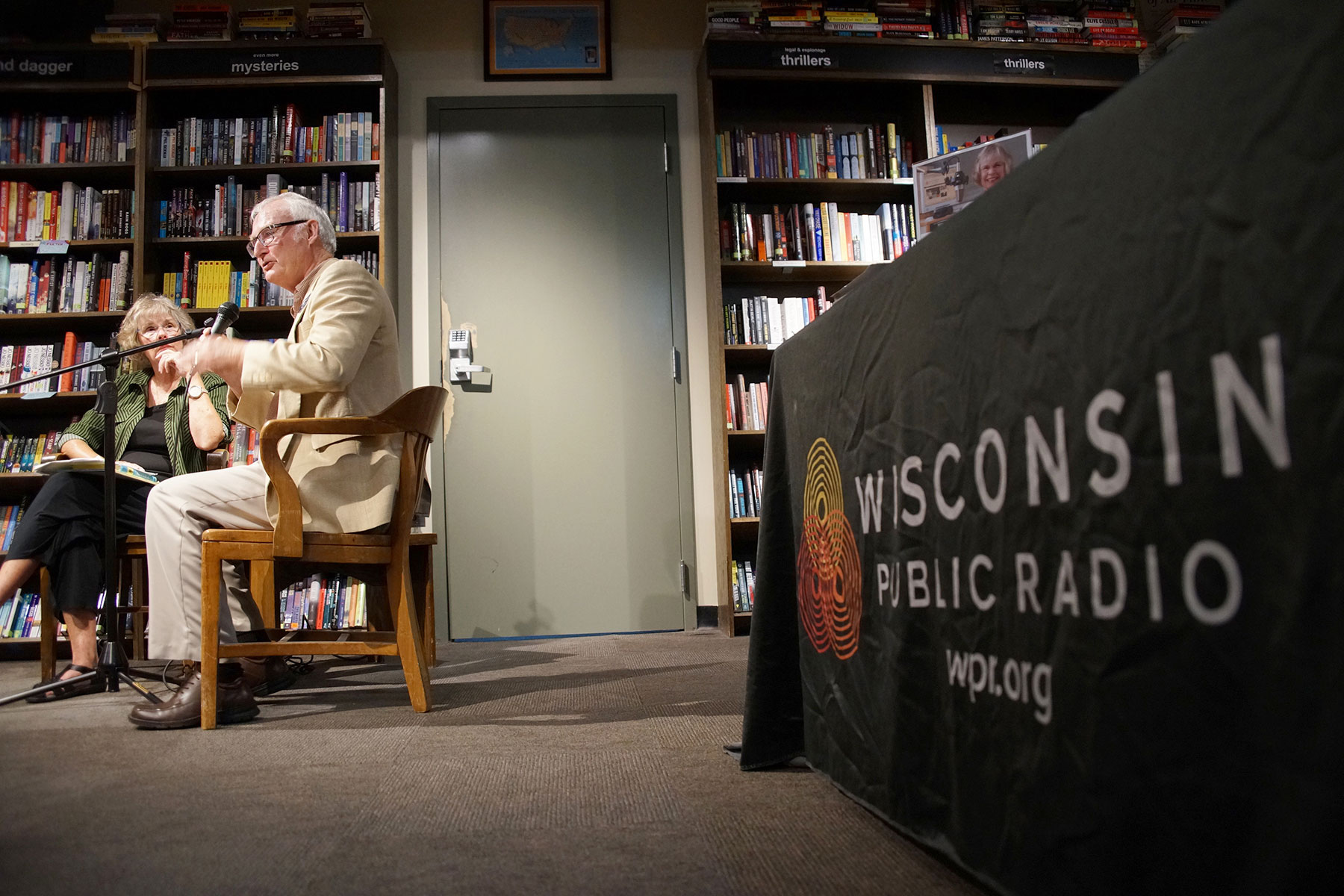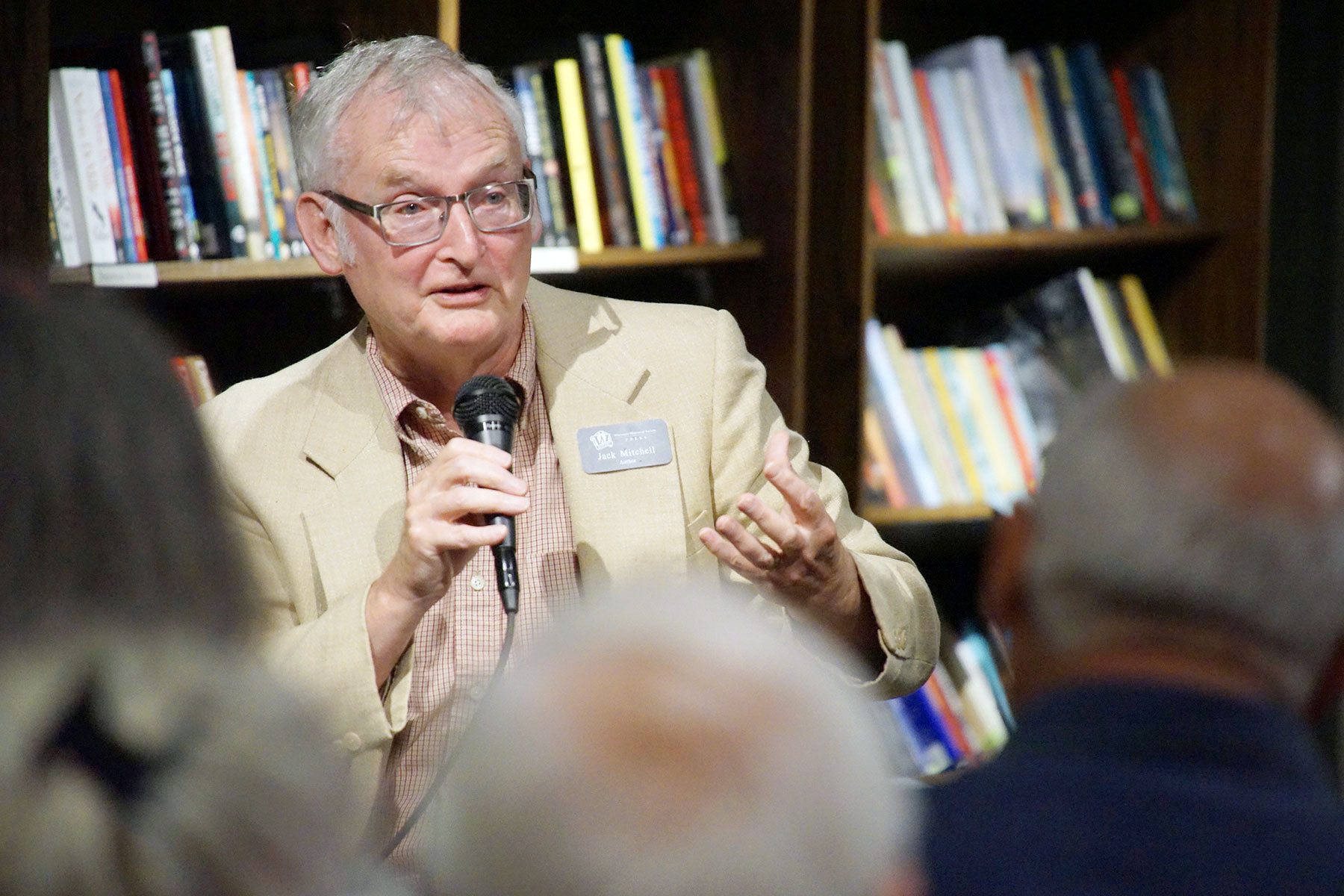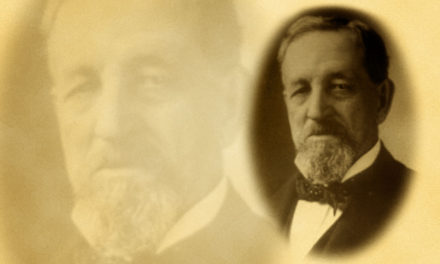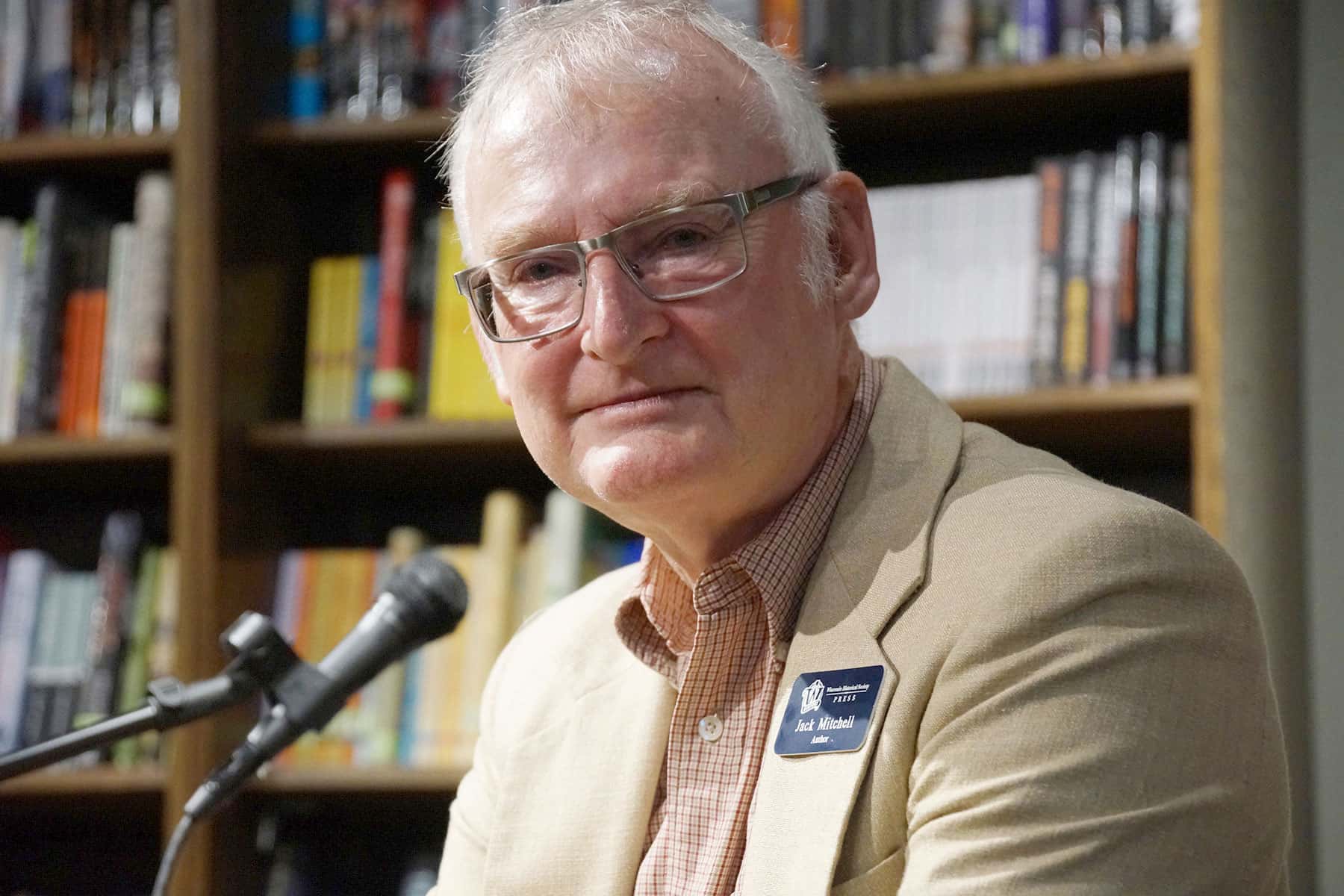
Avid public radio fans gathered in Boswell Book Company on August 18 to see Kathleen Dunn, host of the popular “Kathleen Dunn Show” on Wisconsin Public Radio (WPR), interview Jack Mitchell about his book Wisconsin on the Air: 100 Years of Public Broadcasting in the State that Invented It.
The book gives readers a detailed look into the history of public broadcasting in Wisconsin and discusses how its values of public education and impartiality continue in public radio today.
Mitchell, who is currently an emeritus professor of Journalism and Mass Communications at University of Wisconsin-Madison, was the director of Wisconsin Public Radio from 1976 to 1997 and was the first employee of National Public Radio (NPR). He helped make NPR what it is today and created the beloved program “All Things Considered.”
The interview began when Dunn asked Mitchell to prove that Wisconsin is truly the state that founded public radio. And prove this he did. Mitchell outlined how WPR was founded in 1917 by professors at UW-Madison and was the first station to carry out the idea that radio can be used to educate the public.
It was not the first radio station, but WPR was the first to carry out this idea that radio can be used to support the public interest. This is called “the Wisconsin Idea,” which is the idea that education should extend beyond the walls of the university and be made available for all. In its original form, WPR was based on exposing the public to the liberal arts, practical advice and the importance of democracy, which is still what it discusses today.
Dunn tries to embody the Wisconsin Idea in her show and commits to the idea that “the boundaries of the university are the boundaries of the state.” Dunn said, “It’s the hope of the show to reach people who are driving trucks and working on farms, people who aren’t necessarily educated. I really want it to be for everybody.”
This accessibility was also present at the founding of WPR. Mitchell said, “Unlike most other educational stations, Wisconsin never had an elitist style or attitude. It always sought to speak to all kinds of people.”
Since WPR was built on a university model, it values impartiality. Mitchell said, “We base our work on the academic values of looking at evidence and trying to be fair, and then testing information against science and facts. Those values were there are the beginning and are still a part of Wisconsin Public Radio today.”
The people that listen to public radio value this university model. They are not satisfied with content that simply enforces their beliefs. They wish to engage in interactive discussion with individuals who, like them, value conversation, information and learning.
Mitchell carried these values of accessibility and impartiality to his work in founding National Public Radio. His work in WPR was essential to founding NPR, because, he said, “Public Radio in Wisconsin had 50 years of experience before anyone seriously thought about a national network.”
Along with its experience, WPR also supported public education, which continues to be the main goal of both NPR and WPR.
The history of public broadcasting in Wisconsin makes the state unique in its support of public education in radio. The legacy of its creation in 1917 continues today in Wisconsin and across the country in the values it instilled in the foundation of NPR.
© Photo
Lee Matz

